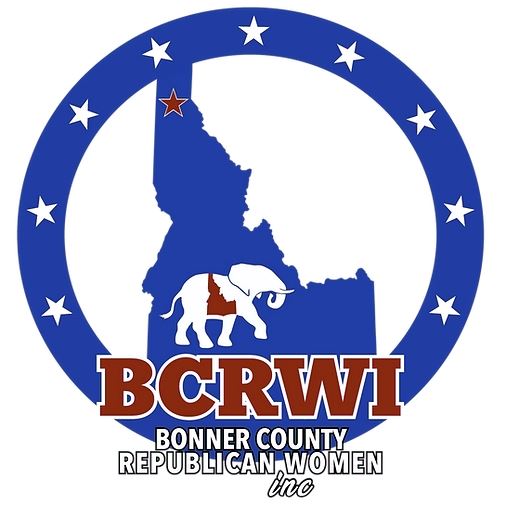|  EDUCATE AND ADVOCATE |
- Home
- Election Central
- Vote No Prop 1
Why Prop 1 (Ranked Choice Voting) is a Bad Choice for Idaho
As Republicans and conservatives, our commitment to democracy, individual responsibility, and limited government remains unwavering. With the debate around Ranked Choice Voting (RCV) gaining traction in Idaho, it is imperative to critically assess this system and its potential impact on our state's electoral integrity and conservative values. Rank Choice Voting is on our ballot as Prop 1. What follows is an explanation for why you should Vote No.
Why You Should Vote No on Prop 1 - Rank Choice Voting (Open Primaries) in Idaho
Rank Choice Voting (RCV), also known as Instant Runoff Voting and sometimes presented as Open Primary, has been proposed as an alternative voting method in various states, including Idaho. While proponents argue that RCV leads to more democratic outcomes and reduces negative campaigning, there are several reasons why Idahoans should vote no on Proposition 1 which will implement Rank Choice Voting.
RCV Creates Complexity and Confusion
One of the foremost concerns with RCV is its complexity. Traditional voting methods are straightforward: the candidate with the most votes wins. RCV, on the other hand, requires voters to rank candidates in order of preference. This voting method complicates the voting process and increases the likelihood of voter error.
In a state like Idaho, where voter participation and understanding of the electoral process are crucial, adding layers of complexity can disenfranchise voters, particularly those less familiar with the system. This added layer of decision-making can be confusing, particularly for older voters, newcomers, or those less familiar with the voting process.
Studies have shown that voter error rates increase with the complexity of the ballot. In a system where voters must rank multiple candidates, the likelihood of mistakes, such as over-voting (ranking more than one candidate at the same level) or under-voting (not ranking enough candidates), can lead to ballots being discarded. These errors disenfranchise voters and undermine the democratic process.
Erosion of Clear Mandates and Disproportionately Disadvantage Conservative Candidates
Under the traditional voting system, the candidate who wins enjoys a clear mandate from the electorate. RCV dilutes this clarity. A candidate can win without having the majority of first-choice votes, leading to a situation where the elected official lacks robust and direct support from the electorate. This consequence undermines the principle of majority rule and can result in elected officials who do not truly represent the will of the people.
 Prop 1 is a Threat to Conservative Candidates
Prop 1 is a Threat to Conservative Candidates
RCV can disproportionately disadvantage conservative candidates. In a predominantly conservative state like Idaho, the traditional voting system has consistently ensured that conservative voices are adequately represented. RCV, however, will enable more moderate or even liberal candidates to win by accumulating second and third-choice votes. This threatens the conservative stronghold and can lead to the erosion of conservative values in state policies and governance. Democrats and liberals fight for the advantage RCV brings them.
Potential for Manipulation and Strategic Voting
While RCV is designed to reduce negative campaigning and promote more positive electoral environments, it can be used for strategic voting and manipulation. RCV opens the door to strategic voting and manipulation. Voters may be encouraged to rank candidates in a way that does not reflect their true preferences, but rather as a tactic to block a disliked candidate. This distorts the electoral process and can lead to outcomes that do not accurately reflect the electorate's genuine choices. Ensuring the integrity and authenticity of the voting process is paramount, and RCV undermines this principle.
Additionally, in closely contested races, the process of redistributing votes from eliminated candidates can produce unpredictable and sometimes controversial results. Candidates who initially receive the most first-choice votes may lose in later rounds due to the distribution of lower-preference votes. This outcome can be perceived as unfair and undemocratic, leading to decreased trust in the electoral system.
Increased Costs and Administrative Burdens
Implementing RCV requires substantial changes to voting infrastructure, including new voting machines, voter education programs, and increased administrative oversight. These changes come with significant costs, burdening taxpayers and diverting funds from other critical areas. Conservatives advocate for fiscal responsibility and minimal government intervention. RCV contradicts these principles by necessitating an expensive and cumbersome overhaul of our electoral system.
Delayed Election Results
Moreover, counting Rank Choice ballots is more time-consuming and complicated than traditional voting methods. Election results may be delayed as ballots are re-tabulated in multiple rounds to determine the winner. This delay can erode public confidence in the electoral process and lead to frustration among voters and candidates alike.
Limited Evidence of Benefits
Proponents of Rank Choice Voting argue that it leads to more representative outcomes and reduces negative campaigning. However, the evidence supporting these claims is mixed. While some studies suggest marginal improvements in voter satisfaction and candidate behavior, other research indicates that the benefits are overstated.
For instance, a study by the Maine Policy Institute found that RCV did not significantly increase voter turnout or reduce negative campaigning in the state's elections. Similarly, in cities like San Francisco and Minneapolis, where RCV has been implemented, there is little conclusive evidence to suggest that it has led to more effective or satisfactory governance.
Conclusion - Ranked Choice Voting Threatens Conservative Candidates
While proponents of Ranked Choice Voting argue that it promotes fairness and inclusivity, the reality is that it introduces unnecessary complexity, undermines clear mandates, and poses a threat to conservative representation in Idaho. The traditional voting system has served our state well, ensuring that the will of the majority is respected and that elected officials have a clear mandate. As Republicans and conservatives, we must uphold these principles and resist the adoption of RCV in Idaho.
Rank Choice Voting proponents assert it enhances the democratic process, but the potential drawbacks regarding complexity, costs, strategic manipulation, and limited proven benefits suggest that Idaho should avoid these claims. RCV is often promoted as an "Open Primary" movement. This claim is just one more liberal misnomer. Voting no on implementing Rank Choice Voting will help ensure that elections remain accessible, transparent, and fair for all Idahoans. It is crucial to prioritize a system that upholds the integrity of the voting process and maintains public trust in electoral outcomes.
Our focus should remain on promoting electoral integrity, simplicity, and the representation of conservative values. By rejecting RCV, we can continue to uphold the principles that have made Idaho a stronghold of conservative governance and ensure that our state's electoral process remains transparent, straightforward, and reflective of the people's true will.


